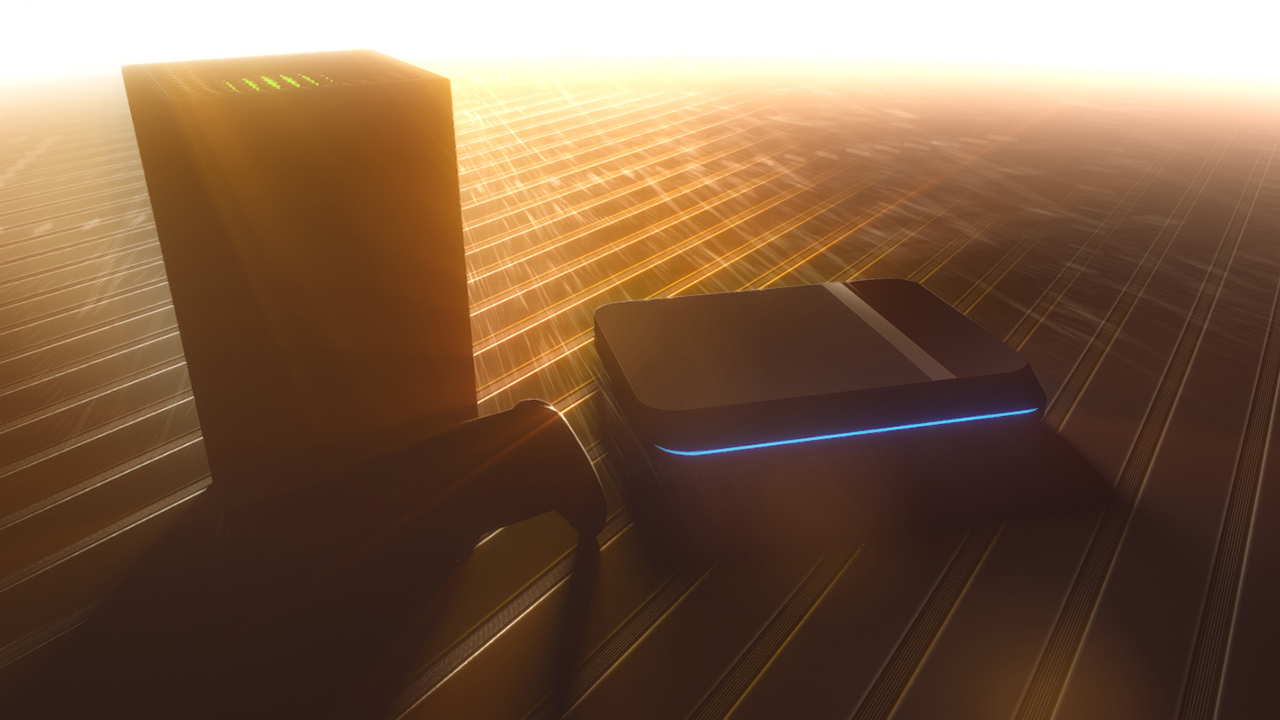7 unexpected PS5 and Xbox Series X features that could define next-gen
These next-gen features will change the way you play

Some things get us excited every time we move from one console generation to the next: better graphics, more reactive worlds, a fresh lineup of exclusive games to anticipate along with the prospect of backwards compatibility. They're the kinds of bullet points that have us fawning over the PS5 and Xbox Series X's respective teraflops, before forgetting all about them until the next console generation arrives.
Other features, however, don't get nearly as much fanfare, even though they hold just as profound an impact on the way we play our games. While we wait for the full, proper debuts of both PS5 and Xbox Series X, it's time to take a look at the upcoming console's features that could still be shaping the way we play years into their lifespans. Amongst all the news we've discovered about the next generation consoles so far, here's the truly unexpected features that could define them.
Faster loading speeds

PS5 vs Xbox Series X - which next-gen console is set to prevail in Holiday 2020 and beyond?
We've come a long way from the old days of booting up Grand Theft Auto: San Andreas and fixing a sandwich in time for the game to load in, but we still have so much further to go. It says so much that the first thing Sony showed off about PS5 was the way it cuts load speeds in Spider-Man PS4 to a tenth of what they were before. Microsoft hasn't made as big of a deal of it for Xbox Series X, but there's no reason to assume the company will let itself fall behind.
One of the key goals for Sony and Microsoft is to reduce any possible friction between you and your games, and long loading times are one of the big remaining sticking points. Some users have already found relief from long loads this generation by swapping in their own solid-state drives, but expect the results to be even more impressive when the tech is purpose-built and load-free from the start.
Smaller downloads and updates
The flip side of building in SSDs with consoles is that they're way more expensive; you can easily find a 2TB hard drive for around $50, but you'll need to do some bargain hunting to find a 2TB SSD for under $200. That's a problem, because games seem to just keep getting bigger. But Microsoft is working on a way to keep games looking just as good as they do now while still shrinking their file sizes to a fraction of what they were before.
The trick there is machine learning. Game developers can take all of their high-resolution, data-hogging textures, use them to train an AI algorithm, and ship the game with teensy versions of those same textures. The algorithm then takes those lil' blurry textures and intelligently scales them back up as you play, with no loss of detail and minimal impact on performance. Hopefully it's just one of several approaches to finally keep game install and update sizes under control.
More valuable subscriptions
Though we usually think about the hardware and games first when it comes to a new generation, the services behind them will be just as important this time around - if not more so. The changeover to a new generation is a chance for both Sony and Microsoft to either rethink or reinforce their subscription services at a more fundamental level.
Sign up to the GamesRadar+ Newsletter
Weekly digests, tales from the communities you love, and more
Microsoft is in a pretty darn good place with its all-in-one Xbox Game Pass Ultimate bundle - I'd even say that it's the best value Xbox has ever offered. Microsoft knows people love it, Sony knows that it's taken some of the shine off of its own offerings, and both of them are keeping that in mind for the next generation. What changes will take place as a result is harder to say, but they could cover free games, streaming, partnerships with other subscription services, and beyond. Now that the consoles and companies are better set up to support ongoing services outside of traditional multiplayer, expect them to be one of the most definitive features of the next generation.
Cross-play, and not as an afterthought
It doesn't seem like anybody planned for this console generation to finally be the one that broke down the barriers between cross-console multiplayer. It just sorta happened. That said, not every game lets you party up with players on other platforms, and even the ones that do require you to fill out a different in-game friends list every time. And forget about trying to get party chat working - you're better off all just running Discord. The way cross-play works now, it's obvious that there's room for improvement.
Now that we're all getting used to not being walled off from our fellow players based solely on what kind of box we have sitting under our TV, expectations are going to be higher. Players will want more natural ways to link up with players on other platforms. It might be too much to hope for true cross-platform friend lists right now, but better and deeper support for cross-play is the logical next step in expanding multiplayer.
More versatile suspend and resume options
I don't think anybody had "suspend" and "resume" on their list of most-anticipated features for the current console generation, but I can't honestly think of anything else that's had the same fundamental impact on the way I play. Putting a game down then picking it back up hours or days later with minimal load time (and without having to leave it on in full-power mode) has been a revelation, but not one without its hiccups.
We already know at least one way that Microsoft plans to improve the suspend/resume process with Xbox Series X via Quick Resume; a feature which will let you save your spot in multiple games at once, swapping between games and even hard reboots without staring at endless startup screens. That's a great start, but we want even more. Ever found your console didn't automatically download and install a big update for your favorite online game because you forgot you left it in suspend mode? Remaining problems like that are ripe for tackling over the next iteration of console gaming.
Improved sound at the hardware level
Graphical power used to grow in leaps and bounds between console generations - just compare Final Fantasy 9 on PlayStation to Final Fantasy 10 on PS2 one year later. But even as graphics crawl closer to photorealism a pore's width at a time, console makers still want to keep bowling us over with new sensory experiences, and so now they're moving their focus to our ears. Both PS5 and Xbox Series X will feature hardware dedicated solely to better sound in games; PS5 is specifically going for "3D audio" while Microsoft is teasing a focus on "spatial sound" with "dedicated hardware-acceleration".
Gaming sound setups vary so much from player to player - from expensive surround sound systems to a colorful spectrum of headsets - so it will be a major task to make sure every kind of next-gen customer can appreciate an audio upgrade. That said, if Microsoft and Sony can pull it off, they'll open a whole new avenue of experiential enhancements to explore throughout this generation and beyond.
Cloud streaming where it makes sense
Google Stadia's slow start shouldn't fool you: game streaming may still be in its awkward adolescent phase right now, but it's only getting bigger. Between PlayStation Now and Project xCloud, both Sony and Microsoft already have years of cloud gaming R&D under their respective belts. The question remains about how they'll use all of that experience to augment machines that are also meant to play games all by themselves with no help from the cloud whatsoever.
Microsoft is positioning xCloud as part of a larger solution to let you keep on Xbox-ing everywhere: playing on your system in front of the TV, streaming from your system to smart devices in your home, and streaming from the xCloud servers to mobile systems anywhere with an internet connection. It's less clear if and how Sony plans to expand on PlayStation Now, though it did sign a high-profile agreement with Microsoft to use its Azure datacenters. As long as network conditions continue to be inconsistent around the world, and data caps remain a concern, cloud streaming will be an incomplete solution. That could give consoles like PS5 and Xbox Series X a boost if they just use the cloud to augment their services, rather than relying on it wholesale.
See where you stand with our guide to upcoming PS5 games and upcoming Xbox Series X games.
I got a BA in journalism from Central Michigan University - though the best education I received there was from CM Life, its student-run newspaper. Long before that, I started pursuing my degree in video games by bugging my older brother to let me play Zelda on the Super Nintendo. I've previously been a news intern for GameSpot, a news writer for CVG, and now I'm a staff writer here at GamesRadar.



